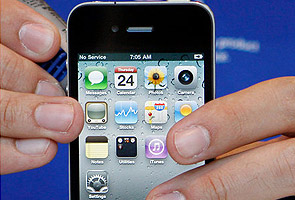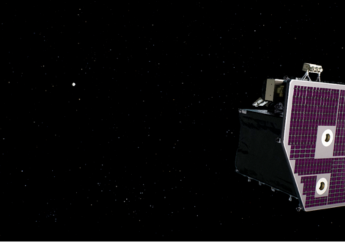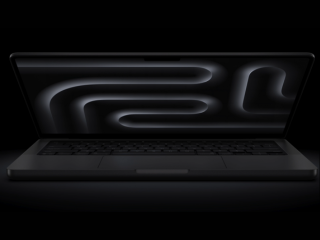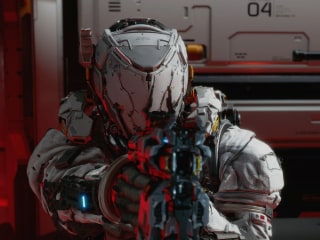- Home
- Mobiles
- Mobiles News
- iPhone crafters are 'maniacal': Apple designer
iPhone crafters are 'maniacal': Apple designer

The world's most valuable technology corporation on Tuesday allowed a rare glimpse into a zealously guarded internal hardware design process that has produced some of the world's most celebrated consumer electronics.
In a high-profile U.S. patent infringement trial against Samsung Electronics Co Ltd that began this week, it called 17-year Apple design veteran Christopher Stringer as its first witness.
Stringer looked every inch the designer with his shoulder-length hair, salt-and-pepper beard, wearing an off-white suit with a narrow black tie.
"Our role is to imagine products that don't exist and guide them to life," he told the jury.
Apple's products -- particularly the seminal iPhone -- are held in high regard throughout the industry. The gadget that revolutionized the smartphone industry is prominently displayed in the avant-garde San Francisco Museum of Modern Art.
The company, which is accusing its South Korean arch-foe of stealing iPhone and iPad design and features, owes a debt to creative guru Jonathan Ive and his cadre of designers a s sembled from Britain, Australia, the United States, Japan, Germany over more than a decade.
Stringer said Apple's group of 15 to 16 industrial designers -- headed by the British-born and recently knighted Ive -- work on all of the company's products and dedicate time every week to discuss them, mostly at the kitchen table.
That's where the group is "most comfortable," he said.
Ive's team leads works out of a large, open studio on Apple's campus in Cupertino, California, with music blaring through a giant sound system and access strictly limited to a small portion of employees, according to a 2006 profile of Ive in Business Week.
Brainstorming
Most of the team have worked side-by-side for 15 to 20 years, said Stringer, who has "hundreds" of design patents to his name.
"We have been together for an awfully long time," Stringer said. "We are a pretty maniacal group of people. We obsess over details."
Over the years, the team earned a reputation for blending the aesthetically appealing with the functional. Stringer worked on the original iPhone -- internally codenamed M-68 -- and almost all of Apple's mobile products.
Once a product design idea is solidified through a brainstorming session, the design team sketches those ideas and models it through a Computer Aided Design process.
The design team doesn't follow a linear creative process from idea to sketch, model and then to engineered demo, Stringer said. Developed concepts will be scrapped if a better idea comes along, he said.
"We are always doubting. We are always questioning."
Stringer listed some of the manufacturing problems for the original iPhone, from putting glass in close proximity to hardened steel to cutting holes in the glass.
"People thought we were crazy," he said.
Copyright Thomson Reuters 2012
For details of the latest launches and news from Samsung, Xiaomi, Realme, OnePlus, Oppo and other companies at the Mobile World Congress in Barcelona, visit our MWC 2026 hub.
Related Stories
- Samsung Galaxy Unpacked 2026
- iPhone 17 Pro Max
- ChatGPT
- iOS 26
- Laptop Under 50000
- Smartwatch Under 10000
- Apple Vision Pro
- Oneplus 12
- OnePlus Nord CE 3 Lite 5G
- iPhone 13
- Xiaomi 14 Pro
- Oppo Find N3
- Tecno Spark Go (2023)
- Realme V30
- Best Phones Under 25000
- Samsung Galaxy S24 Series
- Cryptocurrency
- iQoo 12
- Samsung Galaxy S24 Ultra
- Giottus
- Samsung Galaxy Z Flip 5
- Apple 'Scary Fast'
- Housefull 5
- GoPro Hero 12 Black Review
- Invincible Season 2
- JioGlass
- HD Ready TV
- Latest Mobile Phones
- Compare Phones
- Apple iPhone 17e
- AI+ Pulse 2
- Motorola Razr Fold
- Honor Magic V6
- Leica Leitzphone
- Samsung Galaxy S26+
- Samsung Galaxy S26 Ultra
- Samsung Galaxy S26
- MacBook Pro 16-Inch (M5 Max, 2026)
- MacBook Pro 16-Inch (M5 Pro, 2026)
- Apple iPad Air 13-Inch (2026) Wi-Fi + Cellular
- Apple iPad Air 13-Inch (2026) Wi-Fi
- Huawei Watch GT Runner 2
- Amazfit Active 3 Premium
- Xiaomi QLED TV X Pro 75
- Haier H5E Series
- Asus ROG Ally
- Nintendo Switch Lite
- Haier 1.6 Ton 5 Star Inverter Split AC (HSU19G-MZAID5BN-INV)
- Haier 1.6 Ton 5 Star Inverter Split AC (HSU19G-MZAIM5BN-INV)
















